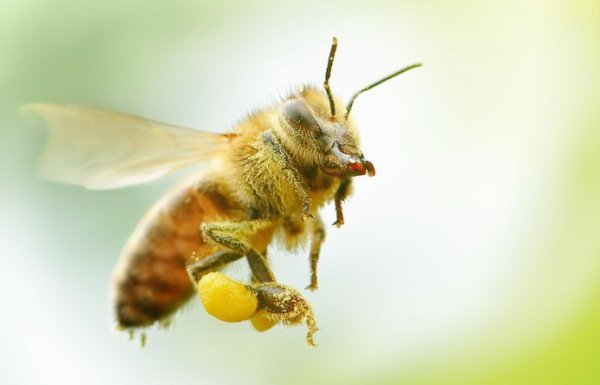New Testing Has Found Potentially Harmful Levels Of Pesticides In US Honey
Tags: News

A study has found evidence of a pesticide that is linked to cancer within samples of honey.
After facing public pressure to test samples of US food for presence of the pesticide, the Food and Drug Administration found new evidence of residues from the weed killer glyphosate within honey. All of the samples that the FDA recently tested contained glyphosate residues, and some of the honey showed levels that were double the limit that is allowed in the European Union, according to documents obtained through a Freedom of Information Act request. There is currently no legal tolerance level for glyphosate in honey in the United States.
Glyphosate is the key ingredient in Monsanto Co.’s Roundup herbicide, and is the most widely used weed killer in the world. Fears over the presence of glyphosate residues began after the World Health Organisation claimed that its cancer experts determined glyphosate is a probable human carcinogen back in 2015. Together with this, international scientists have also recently raised concerns about the heavy use of glyphosate impacting human health and the environment. The FDA, the Environmental Protection Agency and the US Department of Agriculture show reports of glyphosate also found in soybean and wheat samples, as well as evidence of “a lot of violation for glyphosate” residues in US crops.
The FDA has not examined foods for signs of glyphosate residues for decades, and the testing only recently began after independent researchers started conducting their own testing, and therefore found the pesticide in an array of food products, including flour, cereal, and oatmeal. The government and Monsanto have maintained that any glyphosate residues found in food would be minimal enough to be safe, although critics have stated that without thorough testing there is no way of knowing the levels in foods, and regular consumption of food containing glyphosate may be harmful.
One internal email within the records released by the FDA states that there has been trouble locating any honey that does not contain glyphosate. An FDA researcher says, “I collect about 10 samples of honey in the market and they all contain glyphosate.” Sioux Honey Vice President, Bill Huser, explains that glyphosate is commonly used on farm fields that are often visited by bees, meaning that the pesticide then travels back with the bees to their hives where the honey is produced. He said, “The industry doesn’t have any control over environmental impacts like this.” He further explains that beekeepers are often located near to farmers whose crops are genetically engineered with the use of glyphosate. One honey company operator said, “I don’t understand how I’m supposed to control the level of glyphosate in my honey when I’m not the one using Roundup. It’s all around me. It’s unfair.” The arrangement of talks to discuss enforcement of residue levels in the USA to limit the use of the weed killer are constantly being pushed back by the government. Jay Feldman, executive director of Beyond Pesticides, said, “There is no sense of urgency around these exposures that we live with day in and day out.”
IMAGE CREDIT:Serg_v / 123RF Stock Photo
I am Jess Murray, wildlife conservationist, photographer, and writer. I like to document the natural world and create awareness through my writing so that your future can be sustainable and positive. Follow my Facebook page and Instagram account to be part of the journey.
Leave Comment: